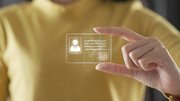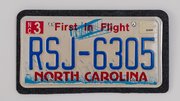News
Maryland again scrutinizes voting kiosks
January 29, 2004
COLUMBIA, Md. -- Results tallied by Maryland's 16,000 new electronic voting machines can be trusted in their first statewide test during the March 2 presidential primary, but only with some added security measures, a state official and a consultant told legislators yesterday.
According to an article on SunSpot online,consultant Michael Wertheimer said some type of paper trail is needed to allow voters to feel sure their ballots are counted just as they cast them.
Wertheimer said limited use of paper ballots or receipts will restore voter confidence in a technology that has attracted a growing chorus of skeptics in recent months.
Maryland is spending $55 million on the Diebold AccuVote-TS touchscreen machines, which were tested in four counties in 2002 and will debut in every other jurisdiction except Baltimore on March 2. The city plans to switch to Diebold's system in 2006, the article said.
The consultant said he found that it is possible to vote multiple times, break into machines and disrupt results or get voters to select the wrong candidates. It's also possible to dial in to election headquarters and alter results or wipe out all of them.
"You're more secure buying a book from Amazon.com than you are uploading your results to the Diebold server," Wertheimer told a state panel.
Diebold representatives were not asked to speak at yesterday's briefings, but a spokesman for the company said later that several elections have been conducted using their machines in four counties in Maryland and they have all been run successfully.
The issue of the paper ballots has received a great deal of attention in recent months. California's secretary of state recently decreed that its electronic voting machines would have a voter-verified paper trail -- meaning the voter can at least see a piece of paper as it records how he or she voted. Diebold will reportedly be providing printers at no cost.
Wertheimer is pushing a limited use of paper ballots, perhaps on one or two machines in a precinct to provide for an audit and a comfort level for voters, the article said.
 ChatGPT
ChatGPT Grok
Grok Perplexity
Perplexity Claude
Claude










